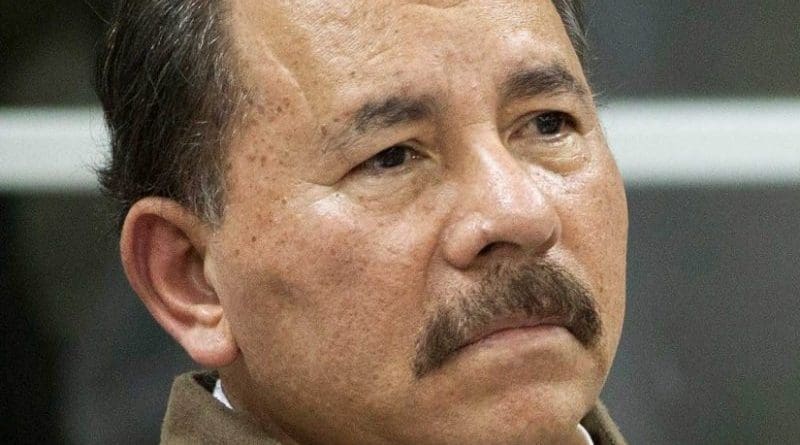Nicaragua: Daniel Ortega Wins Elections, Wife To Be Vice-President
With over 72 percent of the votes, Daniel Ortega, 71, won Nicaragua’s elections that were held on Nov. 6. Ortega, who now has his wife Rosario Murillo in the vice-presidency, will assume his third consecutive term on January 10, 2017, for a 5-year period.
Besides voting for president, 90 deputies were also elected for the National Assembly as well as 20 representatives to the Central American Parliament.
Ortega, the leader of the Sandinista National Liberation Front (FSLN), governed between 1979 and 1990, first as Coordinator of the Junta of National Reconstruction after the victory of the Sandinista Popular Revolution on July 19, 1979, that brought the fall of dictator Anastasio Somoza (1967-1979), and then from 1985 to 1990 when he ran for reelection but lost to Violeta Barrios de Chamorro (1990-1997).
The FSLN, with Ortega at the helm, spent the next 16 years in the opposition. He was a candidate again in the elections of 1996 and 2002, when he was defeated by Arnoldo Alemán (1997-2002) and Enrique Bolaños (2002-2007), both of the Partido Liberal Constitucionalista (PLC-Constitutionalist Liberal Party). In 1999, Ortega and Alemán negotiated an agreement to share the powers of the State in equal terms, thus leaving the institutionalism of the country in the hands of Sandinistas and Liberals.
In 2006, Ortega won the elections with 38 percent of the vote, and in 2009 he already had the intention to run again two years later, but the Constitution prohibited him from seeking consecutive reelection and also prevented those who had served two terms as president from participating, as it was his case. In October of that year, Ortega set into motion an appeal in which he stated that article 147 of the Constitution that prohibits reelection, violated his unconditional equal rights of all Nicaraguan citizens to hold public office. The Supreme Court, controlled by the FSLN, declared the article as inapplicable stating that “it is the obligation of the State to eliminate the obstacles that prevent the right to equality to Nicaraguans and to their effective participation in political, social and economical life of the country.”
In 2011, Ortega ran again thanks to the Supreme Court ruling and was the winner with 66 percent of the vote, which allowed him to maintain control of the National Assembly with 63 of the 92 Deputies. Three years later, the Legislative branch approved a constitutional reform that guaranteed indefinite reelections for Ortega.
Absolute control
Ortega and Murillo celebrated their victory in an election without international observers.
“We want to, very humbly, thank all the Nicaraguan families who yesterday and today have said yes to love, yes to life, yes to peace, yes to a new political culture and yes to unity for all, for the benefit of all,” they expressed in a declaration.
The opposition was represented with the participation of the PLC, which received 15 percent, followed by the Alianza Liberal Nicaragüense (Nicaraguan Liberal Alliance), with 4.7 percent, the Partido Liberal Independiente (PLI-Independent Liberal Party), with 4.5 percent, the Partido Conservador (Conservative Party) with 2.3 percent, and the Alianza por la República (Alliance for the Republic) with 1.4 percent of the vote.
Ortega’s victory was foreseen. The polls had him as the absolute winner, even to the margin of victory he obtained. Although the Supreme Electoral Council, under the control of the FSLN, states that 57 percent of the 4.3 million electorates turned out to vote, the opposition alleged that absenteeism reached 70 percent.
The poor electoral performance of the opposition, mainly right-leaning, has to do with its fragmentation and the decision of the Supreme Court in June to strip the PLI of its legal representation and provide it to a sector closer to the FSLN. Also, it removed from their seats the 28 lawmakers that were part of the Coalición Nacional por la Democracia (National Coalition for Democracy), the second strongest group in the national Assembly that included eight parties with parliamentary representation, which did not join forces with the new leadership of the PLI.
The opposition sectors qualified the elections as a “farce.” The Frente Amplio por la Democracia (Broad Front for Democracy), a space of convergence for social and political forces that are fighting for the reconstruction of democracy in Nicaragua, which lead the campaign encouraging people not to vote, expressed in a statement that “what happened today, Nov. 6, has been an electoral farce and constitutional fraud.”
“Daniel Ortega has imposed on us an authoritarian, dictatorial, one-party regime, with growing civil rights restrictions and successive electoral fraud, to the point of achieving the collapse of the electoral system, of the political parties and of the democratic institutional system,” said the statement that called on the citizenship to “continue demanding true, plural elections, with new electoral authorities, with a democratic electoral legislation, with full citizens rights, and national and international observers.”


Was a great election in Nicaragua and thanks God Daniel Ortega continuing in power,thank you also to give us this report very accepted very professional. Viva Nicaragua